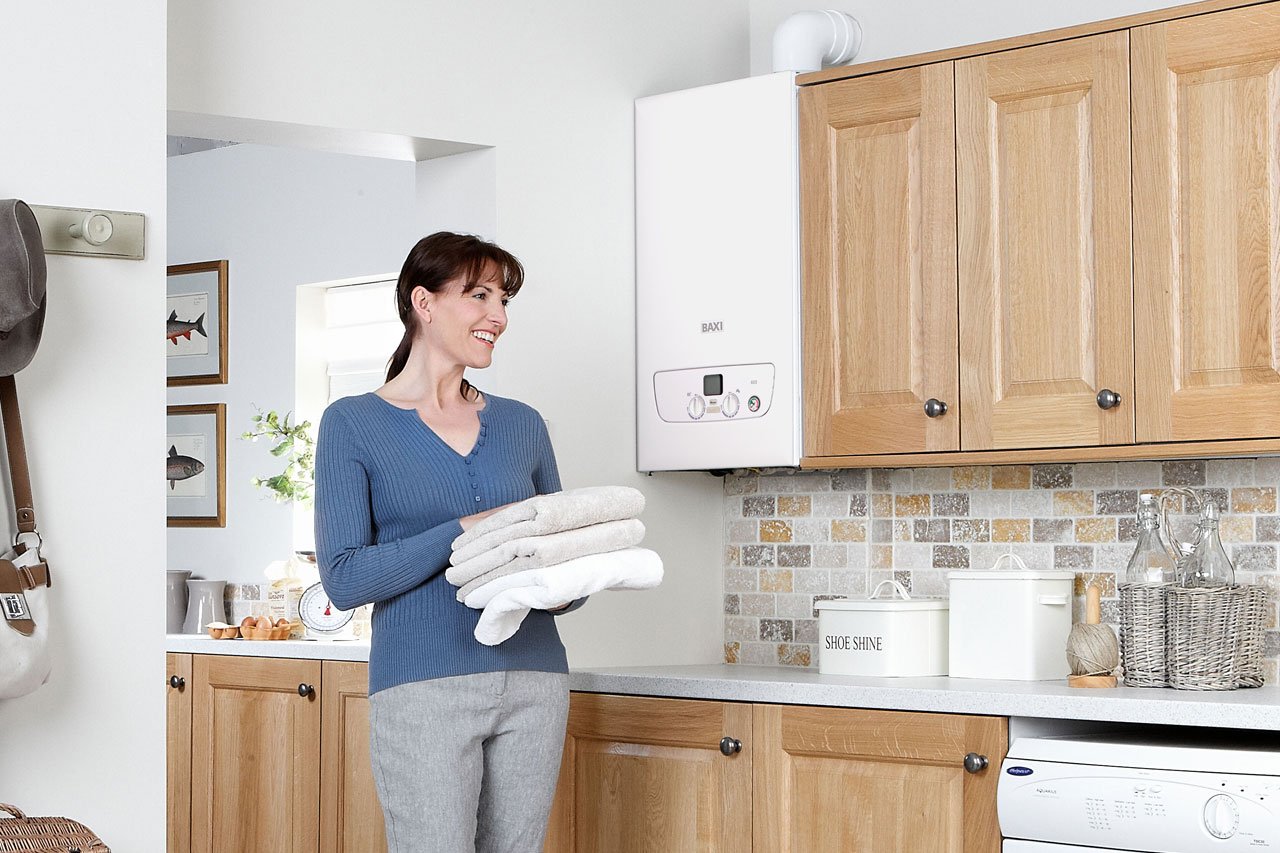Loading component...
Flue Gas Heat Recovery is a device that sits neatly between boiler and flue.
It collects any remaining heat in the flue gas which would normally go through the flue, into the atmosphere and be wasted. This extra heat is then recycled back through the boiler to give it a head start when heating up the incoming cold water.
How does Flue Gas Heat Recovery (FGHR) work?
The waste flue gases pass through the FGHR device and any heat that remains is extracted by specially designed heat exchangers inside. This heat is then reused to pre-heat water coming into the boiler from the cold mains supply. This significantly reduces the amount of gas required by the boiler to heat the water, which means lower energy bills for the householder and greater carbon savings.
FGHR is a sealed-for-life unit that has no moving parts and does not require any maintenance other than a visual check during a normal boiler service. And it has no controls or settings for the user to worry about.
An additional benefit of the device is that, as the flue gases leaving the FGHR device contain considerably less moisture and hardly any heat, the amount of pluming from the outside flue terminal is significantly reduced.
What are the benefits of Flue Gas Heat Recovery (FGHR)?
- Increases boiler efficiency, saving between 37 and 50 per cent of the gas used to heat hot water annually (according to tests conducted by an independent scientific test house)
- Reduces water usage in the dwelling - helps to reduce the amount of wasted lukewarm water that a boiler produces waiting for the water at the tap to get up to temperature. It produces useful hot water quicker
- Increases the hot water flow rate
- Easy to install – no controls, settings or moving parts; maintenance free and does not require servicing
- Low carbon solution
- Less nuisance ‘pluming’ from the flue terminal.




